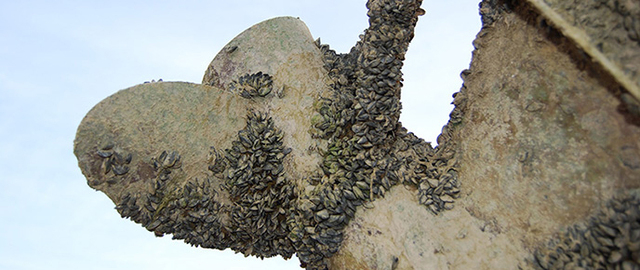Act aims to contain invasive mussel
Lake Mead is one of about 600 bodies of water across the country that’s infested with quagga mussels, and Sen. Dean Heller, R-Nev., is hoping to contain them through Washington.
Heller recently issued the Protecting Lakes Against Quaggas Act, which was first introduced to the House of Representatives in 2013 by Rep. Joe Heck, R-Nev. The amendment would add quagga mussels to the national list of invasive species under the Lacey Act, which enforces civil and criminal penalties for the illegal trade of animals and plants.
“The quagga mussel is a threat to many of our greatest national treasures, including Lake Tahoe and Lake Mead,” Heller said in a news release. “By passing the PLAQ Act and listing the quagga mussel as an invasive species, Congress can protect these natural resources and accomplish in just a short time what would otherwise take many years.”
Since the dime-sized culprits made their way to Lake Mead from the Great Lakes in 2007, they’ve been nothing but trouble by latching on to anything they can, and costing the government millions of dollars.
According to the Southern Nevada Water Authority, quagga mussels filter as much as a liter of water per day, affecting the food chain of native fish and other aquatic wildlife by decreasing the food supply. They also clog and restrict water flow in pipes, requiring costly upkeep and repairs. A single female quagga can produce more than 1 million eggs in a spawning season, the authority said.
The National Park Service has spent more than $6 million trying to contain the quagga mussels, according to spokesperson Christie Vanover. The money came from the U.S. Fish and Wildlife Service, the Bureau of Reclamation and the Southern Nevada Public Land Management Act.
“There’s no environmentally safe way to remove them from the lake because it would involve chemicals that would damage other resources,” she said.
Quagga and zebra mussels have cost more in prevention and control than any other aquatic species to invade the United States, according to Heller. They have cost an estimated $5 billion in prevention and control efforts since their arrival in the Great Lakes in the late 1980s.
“The shells just pile up on each other and they’re sharp,” Vanover said. “You can see clumps of them on rocks at Boulder Beach.”
Boaters can be fined for knowingly transporting quagga mussels across state lines, according to Vanover, but the Nevada Wildlife Department is running free removal stations at Lake Mead to prevent their spread. This can save boat owners as much as $1,000, depending on the size of the vessel.
Those who keep their boat in the water for at least 30 days are required to get it washed for quagga mussels, she said.
Several factors go into containing the quagga mussels, including education, research and law enforcement.
Vanover said she was not allowed to comment on the legislation Heller is trying to pass.
“It’s a continued ongoing effort because more parks are discovering quagga muscles,” she said. “We’re continuing our efforts to educate the public and trying to mitigate the spread.”
















